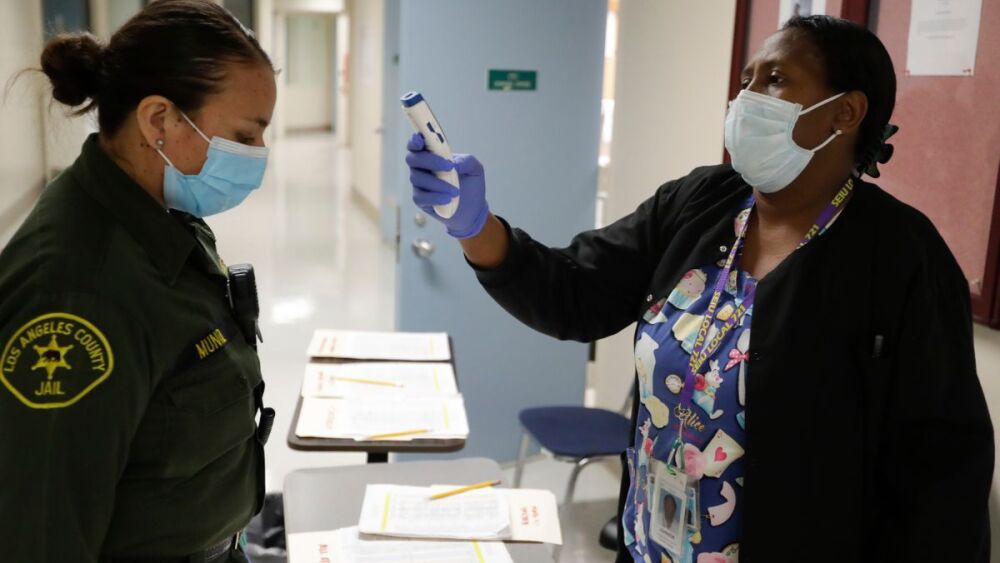Instead of a reprieve, 2021 has followed closely on the heels of 2020 in terms of relentless demands posed by COVID-19 realities on staff of all ranks and disciplines – front-line staff, mid-level supervisors and administrators.
Front-line staff
Based on an unpublished research study conducted by Desert Waters Correctional Outreach in 2021, and also based on our conversations with staff across the country, staff’s biggest challenges in 2021 boiled down to health and functioning concerns.
Staffing shortages (that were perhaps already severe) worsened due to COVID-19, leading to high amounts of mandatory overtime work, and staff’s partial chronic sleep deprivation, becoming the norm at certain agencies. Staff have spoken to us about feeling trapped, stuck and having been taken hostage by their agencies due to having lost their freedom to go home at the end of their shifts.
Uncertainty about the implementation and efficacy of new policies dealing with COVID-19 realities, and frequent amendments to such policies, have added to staff’s emotional burden.
Managing justice-involved individuals, who were worried about their own welfare in ways not encountered before COVID-19, increased line staff’s emotional strain.
These concerns, together with fears about getting infected at work, resulted in staff’s physical and emotional exhaustion, increased susceptibility to physical disease and psychological distress, and malfunctioning.
Mid-level supervisors
Direct supervisors were tasked with managing an increasingly demoralized, emotionally volatile and exhausted workforce, even when they themselves may have been exhausted also.
Administrators
Those at their agency’s helm were confronted by the need to operate in an ongoing fast-paced, problem-solving mode for grave problems never encountered before. With emotions running high, and with needs pressing, knee-jerk reactions may not have been infrequent. Policies got adopted and implemented at record speed, perhaps only to be amended or abandoned after they had been “test-driven” for a while, possibly resulting in confusion and turmoil in the ranks.
Across the board, mandated vaccination requirements have caused some individuals severe anxiety as they had to choose between keeping their jobs or declining the vaccine.
And staff across all ranks and disciplines experienced the grief that resulted when one of their own succumbed to the virus.
Solutions
Dealing with these complex challenges effectively requires wisdom, self-control, teamwork, tolerating uncertainty, bouncing back after mistakes, and learning from disappointments, losses and failures.
Administrators and supervisors MUST invest in their most valuable resource – front-line staff – like never before, genuinely encouraging, recognizing and affirming them, communicating with them regularly, inviting their input and involving them in some decision-making.
Salary raises may be one way to increase the number of new hires or to decrease turnover, though the workplace environment will often have the last word. Unless staff feel truly valued, they will continue to look for alternative employment.
Front-line staff will be wise to focus on what THEY CAN control and on ways to inject hope and positivity in their spheres of influence. And self-care – including leaving their agency, if necessary – must be non-negotiable, for the sake of their physical, psychological and spiritual survival.













